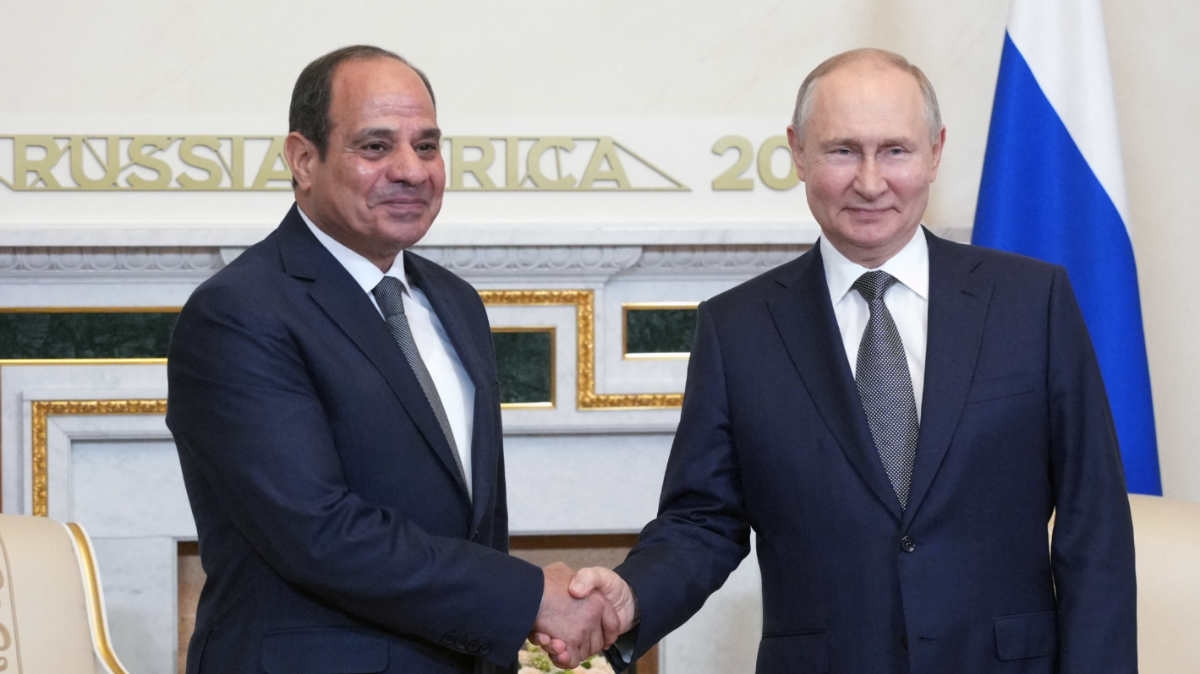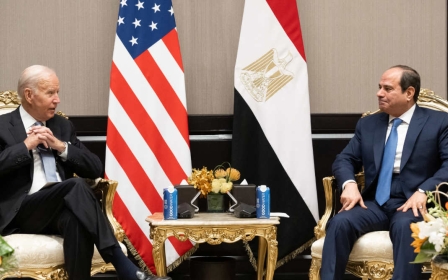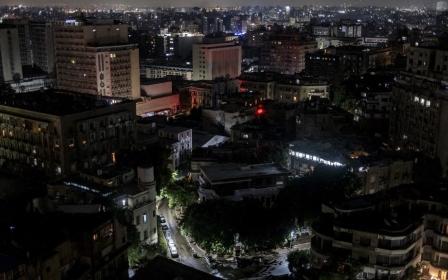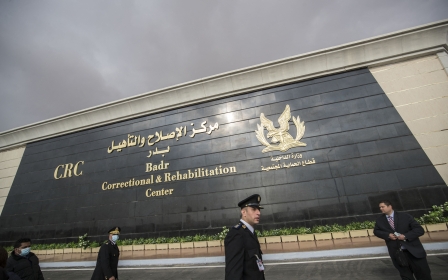Egypt rebuffs US requests to arm Ukraine: Report

Egypt has snubbed multiple requests from the US to send weapons to Ukraine, underlining how far Cairo is willing to go to maintain a neutral position on the war in Europe, despite receiving billions of dollars in US military aid.
US Secretary of Defence Lloyd Austin received a "noncommittal" reply in March when he asked Egypt’s president, Abdel Fattah el-Sisi, to send arms to Ukraine, the Wall Street Journal reported on Friday.
Sisi first planned to secretly supply Ukraine’s foe, Russia, with 40,000 rockets, and told officials to keep the deal secret "to avoid problems with the West”, a trove of classified US documents posted on Discord, a chat app popular with gamers, revealed in April.
Another trove of leaked documents revealed that Egypt later backed down from that plan amid US pressure and had agreed to produce artillery ammunition for Ukraine, according to the Washington Post.
Washington has asked Egypt to give Ukraine artillery shells, antitank missiles, air defence systems and small arms, the WSJ said. Since Austin’s meeting with Sisi, senior US officials have made multiple requests for Cairo to follow through on the request to no avail.
New MEE newsletter: Jerusalem Dispatch
Sign up to get the latest insights and analysis on Israel-Palestine, alongside Turkey Unpacked and other MEE newsletters
According to the WSJ, Egyptian officials say privately that they have no intention of sending arms to Ukraine.
Egypt is not alone among Middle East and North African states that have rebuffed US appeals to cut ties with Russia and aid Ukraine. Turkey, which has tried to position itself as a mediator in the conflict, has done brisk business with Russia amid US sanctions. Meanwhile, the UAE has welcomed Russian oil traders to the flashy emirate of Dubai.
But Egypt’s refusal is notable because Cairo is heavily reliant on the US for military aid. It receives about $1.3bn annually, making it the second-largest recipient, trailing only behind Israel.
The bulk of that support comes via a programme called Foreign Military Financing, or FMF. The US holds funds earmarked for Egypt in the Federal Reserve Bank of New York, and the Department of Defence makes purchases from US defence contractors on behalf of Egypt using funds in collaboration with defence officials in Cairo.
Sisi and Putin ties endure
Sisi has splashed big on arms purchases since coming to power in a 2013 coup that toppled his democratically elected predecessor, Mohamed Morsi.
The purchases have continued despite Egypt suffering from an economic crisis that has seen the country face a shortage of foreign currency and double-digit inflation that has sent middle-class Egyptians into poverty.
Earlier this year, the US awarded Boeing a $426m contract to produce 12 new Chinook helicopters for the Egyptian air force. And in March, General Frank McKenzie, the former top commander for forces in the Middle East, told Congress that the US planned to approve the sale of F-15 fighter jets to Egypt.
The US and Egypt are major security partners, but Sisi has sought to diversify Cairo’s network, striking deals with France and Russia. Between 2017 and 2021, Moscow was the single largest provider of arms to the country, as Egyptian President Abdel Fattah el-Sisi looked to hedge against reliance on the US.
With the outbreak of the war in Ukraine and strains in Russia’s arms industry, senior US officials have suggested there is an opportunity to chip into the Kremlin's inroads.
But Sisi has shown little appetite to break ties with Russian President Vladimir Putin. He attended a summit of African leaders in St. Petersburg in July. Meanwhile, Egypt has continued to buy the majority of its wheat from Russia, with Russian imports actually rising amid the war in Ukraine.
Middle East Eye delivers independent and unrivalled coverage and analysis of the Middle East, North Africa and beyond. To learn more about republishing this content and the associated fees, please fill out this form. More about MEE can be found here.




